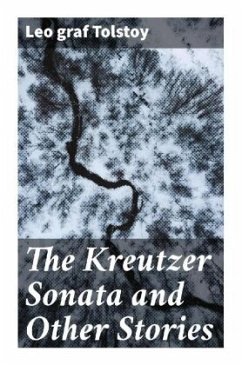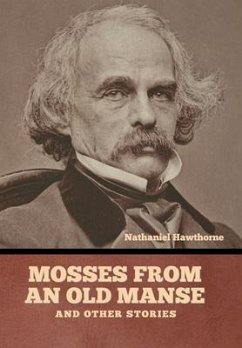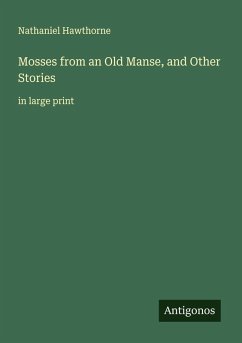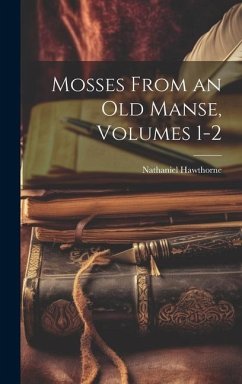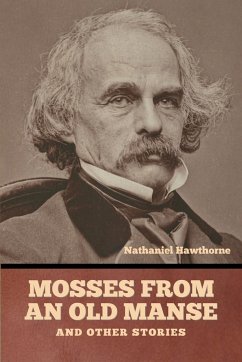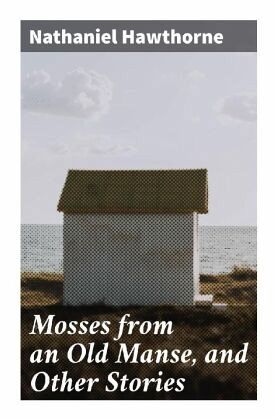
Mosses from an Old Manse, and Other Stories
Versandkostenfrei!
Versandfertig in 6-10 Tagen
8,49 €
inkl. MwSt.

PAYBACK Punkte
4 °P sammeln!
In "Mosses from an Old Manse, and Other Stories," Nathaniel Hawthorne presents a rich tapestry of short stories that delve into the complexities of the human soul, morality, and the nature of sin. Written during the early American Romantic period, these narratives blend psychological depth with symbolic richness, often set against the backdrop of New England's lush landscapes. Hawthorne's lyrical prose and exploration of themes such as guilt, redemption, and the interplay between the past and present showcase his mastery of allegory and vivid imagery, inviting readers into a contemplative enga...
In "Mosses from an Old Manse, and Other Stories," Nathaniel Hawthorne presents a rich tapestry of short stories that delve into the complexities of the human soul, morality, and the nature of sin. Written during the early American Romantic period, these narratives blend psychological depth with symbolic richness, often set against the backdrop of New England's lush landscapes. Hawthorne's lyrical prose and exploration of themes such as guilt, redemption, and the interplay between the past and present showcase his mastery of allegory and vivid imagery, inviting readers into a contemplative engagement with the human experience. Nathaniel Hawthorne, a central figure in American literature, draws from his Puritan heritage and personal experiences, including his distaste for societal norms and the moral conflicts he observed in his contemporaries. This collection, published in 1846 while he was living in the Old Manse in Concord, reflects both his introspection and his fascination with history, enabling him to craft stories that resonate with both personal and universal truths. Hawthorne's background and philosophical inquiries into human nature permeate every tale, marking him as a pioneering voice in the genre of psychological fiction. "Mosses from an Old Manse, and Other Stories" is essential for anyone seeking a profound literary experience that challenges the boundaries of morality and reveals the intricacies of the human condition. This collection not only delights with its poetic language and imaginative narratives but also invites readers to ponder the ethical dilemmas inherent in their own lives.





